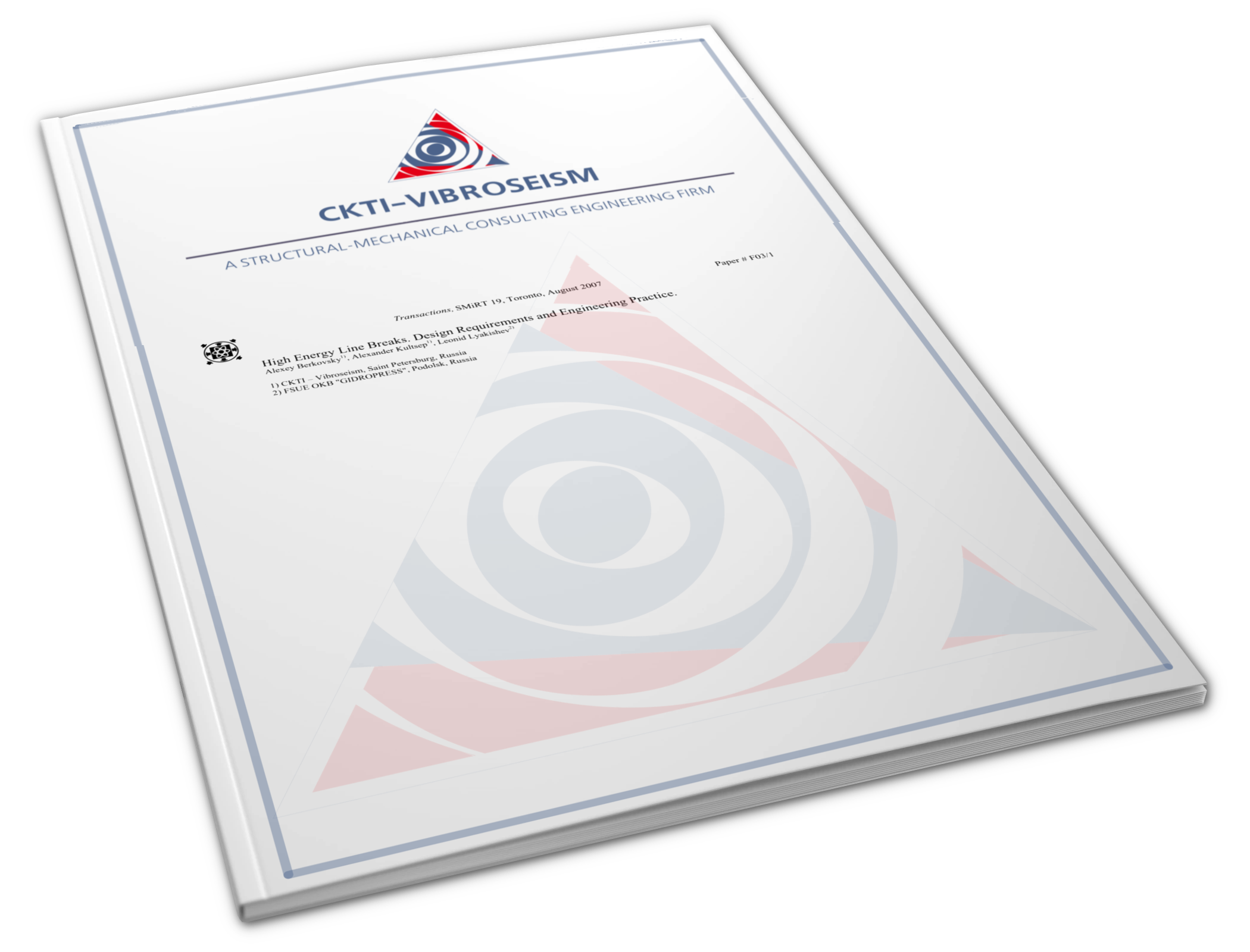High Energy Line Breaks. Design Requirements and Engineering Practice
SMiRT-19, Toronto, Canada, August 12-17, 2007, Paper N F03-1

- Авторы: : Берковский А.М. [Alexey M. Berkovskiy], Кульцеп А.В. [Alexander V. Kultsep], Лякишев Л. [Leonid Lyakishev]
- Редактор: English
- Страницы: 8
- №: 23
- Библиотека: Conference Papers
- Год: 2007
- Файл: SMIRT19-F03-1
Просмотры: 2935
Requirements for protection of Nuclear Power Plants against postulated ruptures of High-Energy Piping systems in terms of defence-in-depth concept present practically in all National and International Guides for NPP Design. During the last decades this problem was somehow shadowed by the successful implementation of LBB approach that proves not occurrence of piping break before a detectable leak will appear. However, implementation of LBB has a some evident limitations such as: sensitivity of detection devices for small piping diameters, uncertainty in loading conditions, fracture mechanisms of crack growth's that do not comply with LBB hypothesis, accessibility of monitored piping segments and finally, high cost of required hardware.
From engineering point of view High Energy Line Breaks (HELB) problem involves multidisciplinary consideration that require an essential knowledge in the different fields, such as: structural mechanic and dynamic, hydrodynamic, plant technological arrangement and so on.
Three main steps of HELB consideration: postulation of pipe break locations, assessment of break consequences and providing of safety measures are illustrated with practical implementation for safety significant WWER -1000 High Energy Line.
Special emphasis in paper is given to the analytical investigation of the pipe whip motion with discussion of different aspects for numerical modelling and result's interpretation. An example of such calculation is presented and it’s shown that a reliable whip motion prediction is possibly if both: the surrounding structures like other pipelines or building parts and material failure limits of the High-Energy Piping are taken into account.
 ООО «ЦКТИ-Вибросейсм»
ООО «ЦКТИ-Вибросейсм» 
